Game Journos Accuse Sifu Devs Of Cultural Appropriation, Falsely Claim They Failed To Consult Chinese People
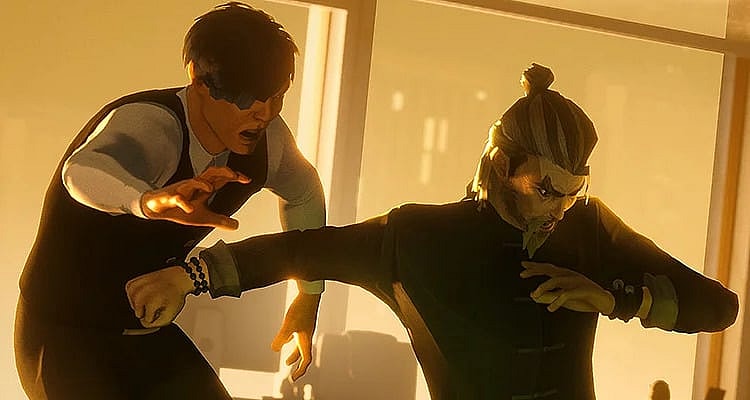
While most are enjoying their time with Sloclap’s new kung-fu brawler Sifu, some industry journalists have taken to accusing the game’s development team of both being too white and falsely claiming that they failed to consult with Chinese individuals regarding their culture.

Launched on February 8th across PC and PlayStation platforms, Sifu tells a tale of revenge, putting players into the shoes of The Martial Artist as he seeks to bring justice to those who killed his master and fellow martial arts students.
In addition to a combat system featuring a number of Pak Mei-inspired moves, the game also features a resurrection system, reviving the hero every he time he dies at the cost of his lifespan.
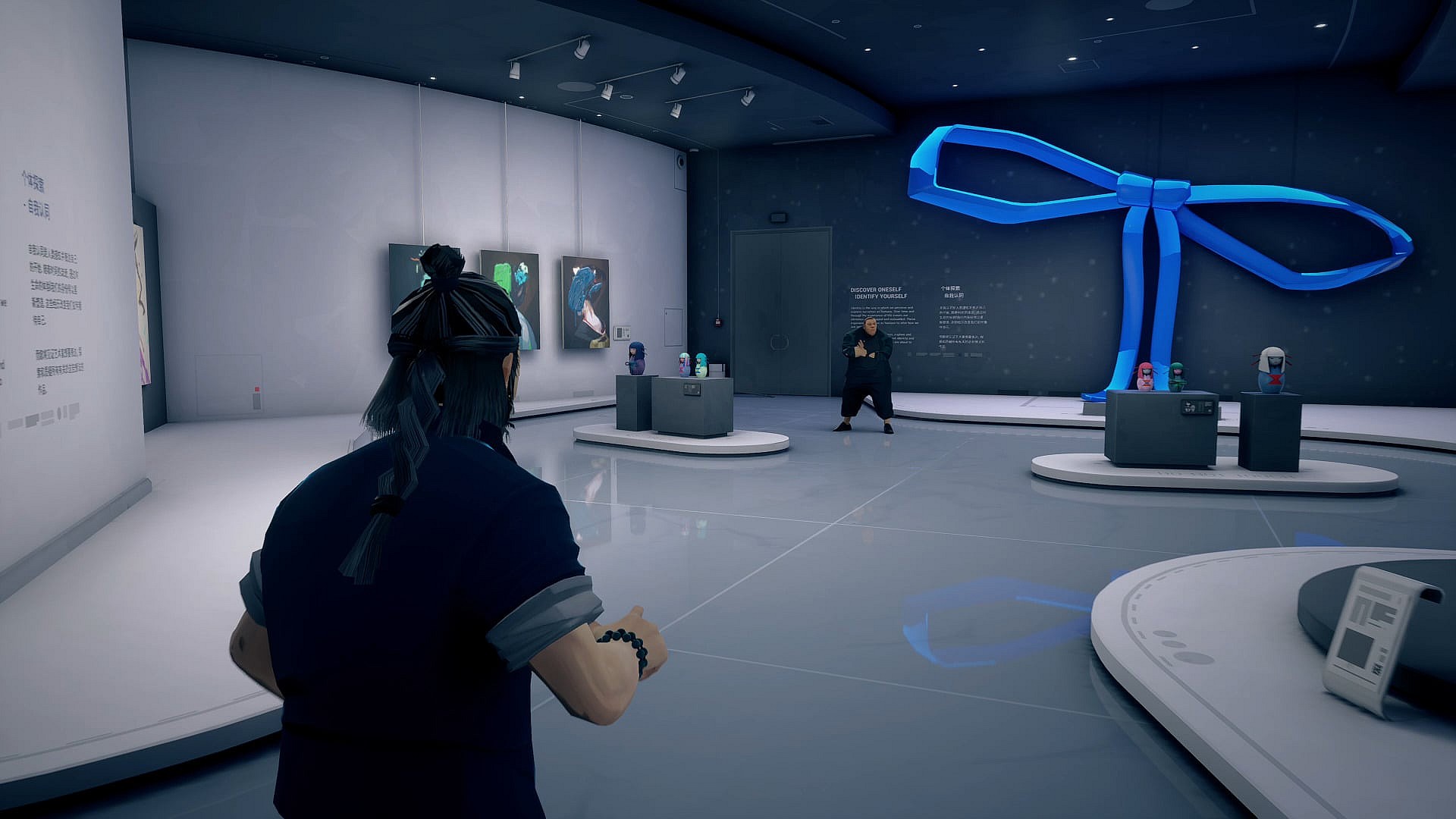
With each revival, The Martial Artist gains stronger attacks but loses an ever-increasing amount from his overall health meter, with players who die too often risking the chance of getting too old to fight.
SIFU has thus far received favorable reviews from critics. Most have praised it for combining beat ’em up style combat with roguelike elements, though critical reviews have alleged such issues as loose controls, lackluster story and level design, and a difficulty level that can at times feel unfair.
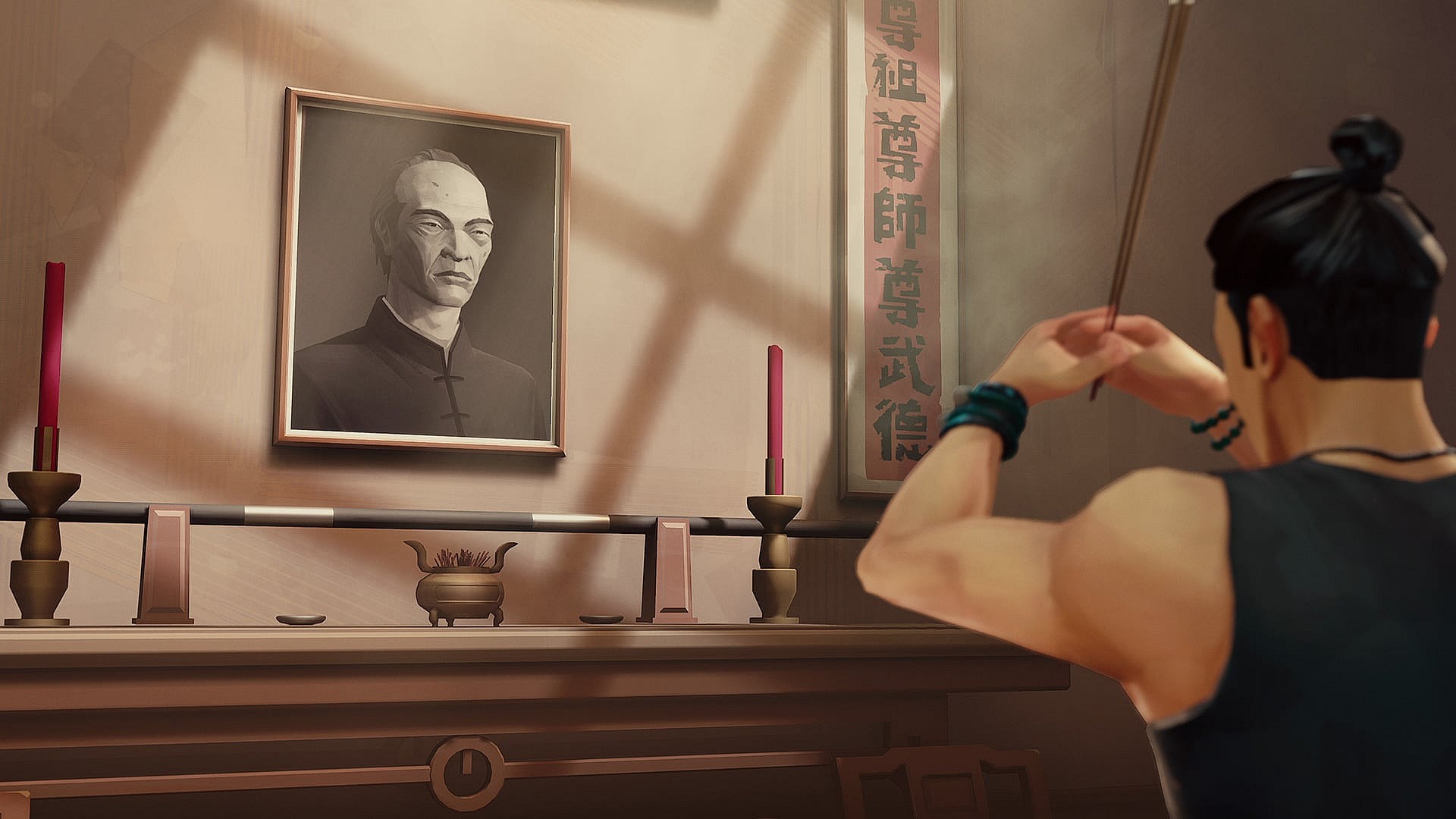
However, some Western journalists were further outraged over their belief that developer Sloclap didn’t have enough Asian developers working on the game.
As showcased in a sampling presented by YouTuber Yellow Flash, a number of articles criticized the game almost purely on the perceived racial make-up of its developers, including such outlets as Paste, Fanbyte, and The Verge.
In his review for Fanbyte, staff writer Funk-é Joseph described Sifu as “a Sharp, but Uncomfortable Action Movie,” noting that while he liked the gameplay, he was “deeply unimpressed with its setting and aesthetic” due to the developers’ primarily being white.
“The Parisian development team at Sloclap is almost entirely white (other than composer Howie Lee) and has no connection to the cultures they’ve dedicated their whole game to,” said Joseph.
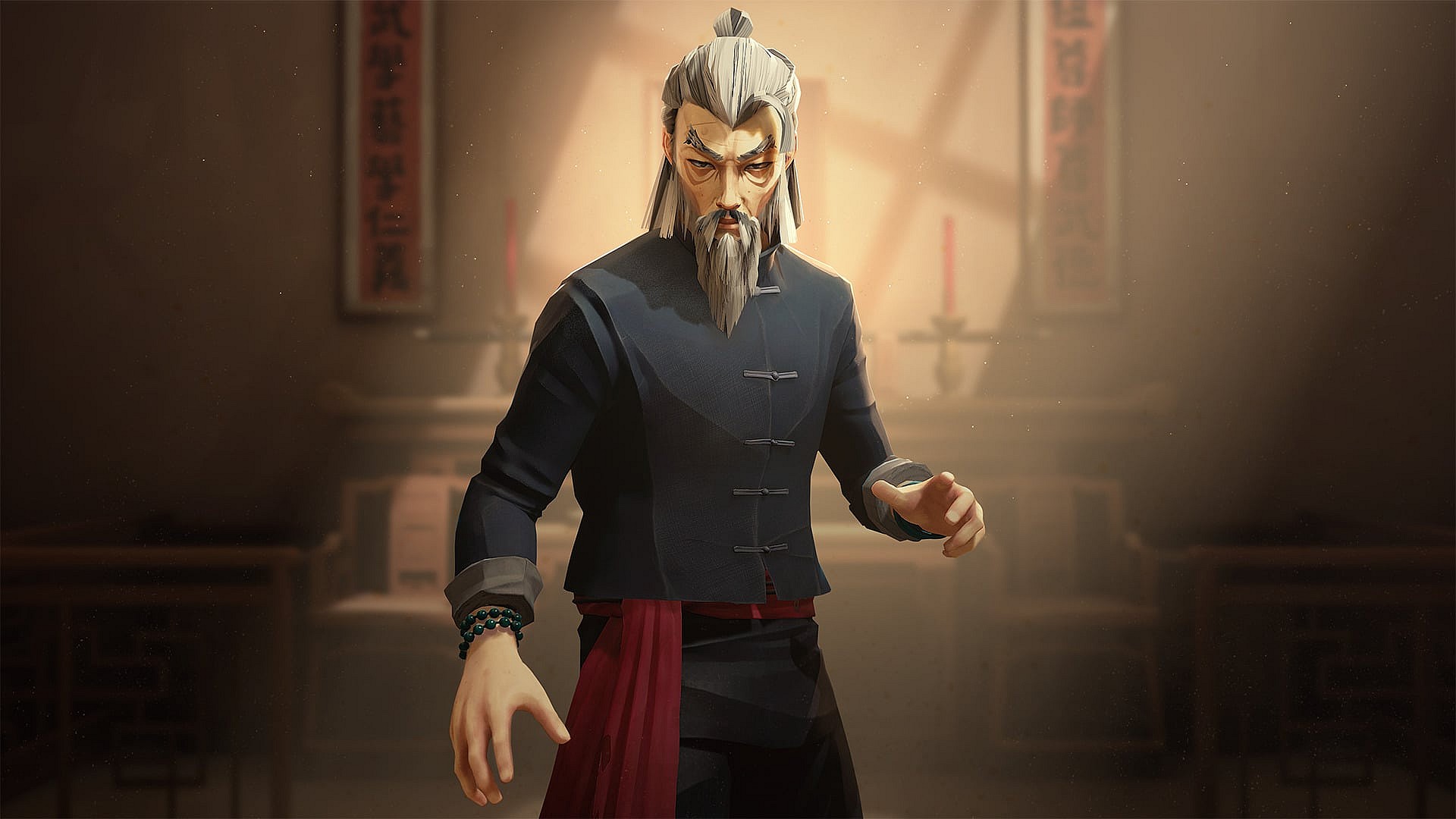
Noting that he was not himself Asian, he then declared, “seeing white people rip other cultures as wallpaper for their creations, no matter how much research is done, is cringy.”
“I’m here for representation, but I’m also a believer that you should write what you know,” he argued. “If Sloclap wanted to tell a Chinese story based in China, they should’ve hired more Chinese staffers to help with writing, development, and production.”

Joseph continued, “While playing through Sifu, it’s hard not to think about its development team being white. It frustrates me because from a gameplay perspective, Sifu is phenomenal.”
“But for the life of me, I don’t understand why this group of people chose to tell this story,” he concluded. “There were a myriad of other avenues available.”

Reviewing the game for Paste, writer Moises Taveras claimed in his headline that “Exciting Fights Can’t Redeem Sifu’s Cultural Shortcomings,” taking particular issue with his perception that the game doesn’t engage with the very culture that inspired it.
“If your home and people were regularly disregarded, exoticized and obscured from work that thinks itself praise that uplifts them,” Taveras writes, “you would find it obvious and self-evident, not to mention outlandishly offensive.”
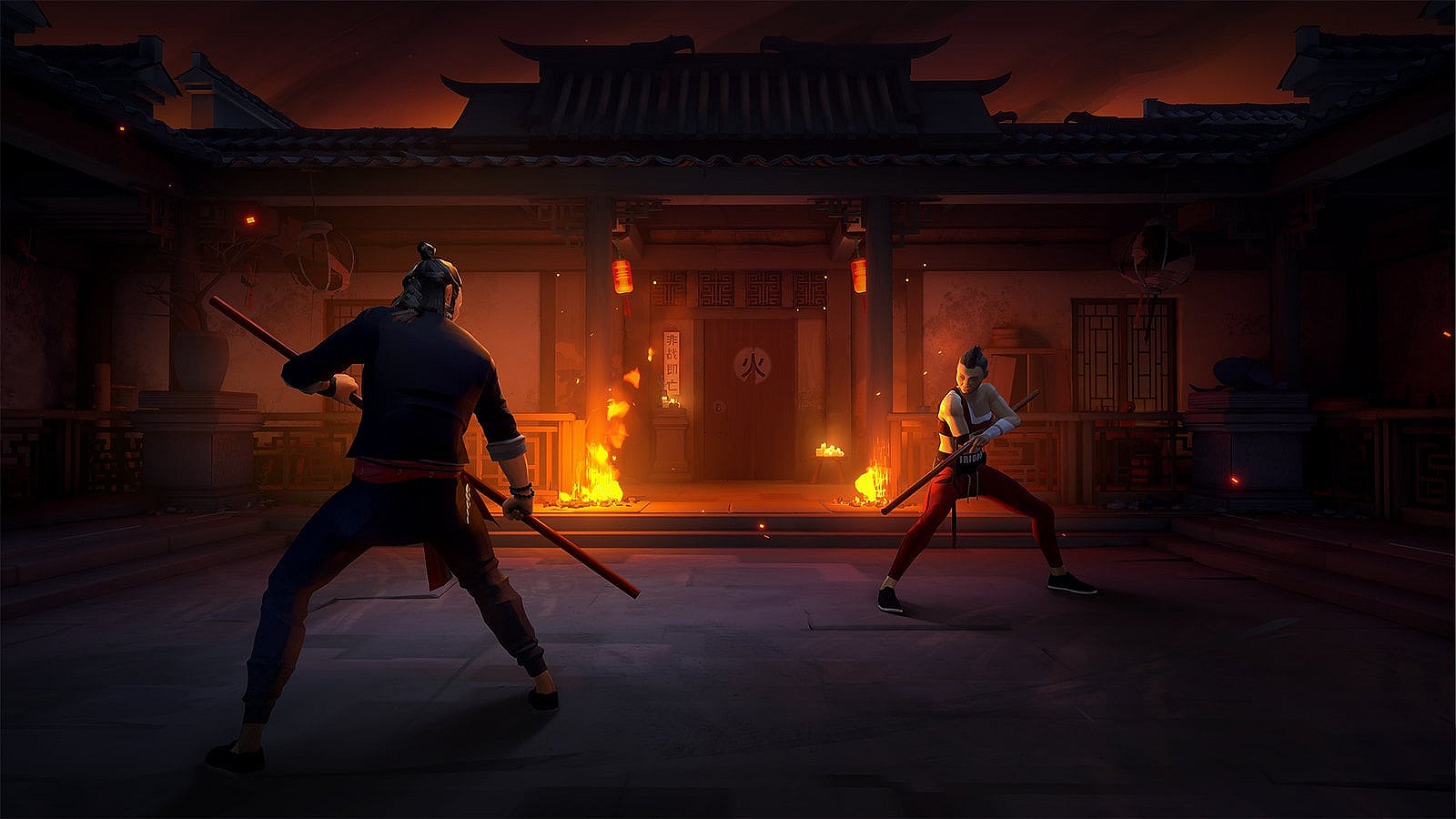
“The way that the city of Sifu could be a number of cities, but elects to vaguely be a Chinese one is strange, almost like the game wants to sidestep the responsibility to carefully represent an actual Chinese space for fear of ruining the fantasy it built,” he adds, before opining, “in what remains the most glaring omission, none of the characters even speak Chinese in the game save for a few specific terms, though a Chinese voice track is set to release around launch.”
Taveras also claimed that another one of the game’s cultural issues was the “the not-so-fun fact that Sifu’s cultural consultant and inspiration for the ‘movement’ of the main character is none other than a white man, (who’s a distinguished Pak Mei master, but a white man nonetheless).”

“Sloclap, a team made based out of France and composed of mostly white people,” Taveras writes, “tries to honor Chinese culture with Sifu and display a level of admiration for it in the oddest way possible: erecting its own monument in the very image of the people that inspired the game, meanwhile erasing them from most steps of its creation. The result is a wildly uneven commodification of a people, place, their history and their art.”
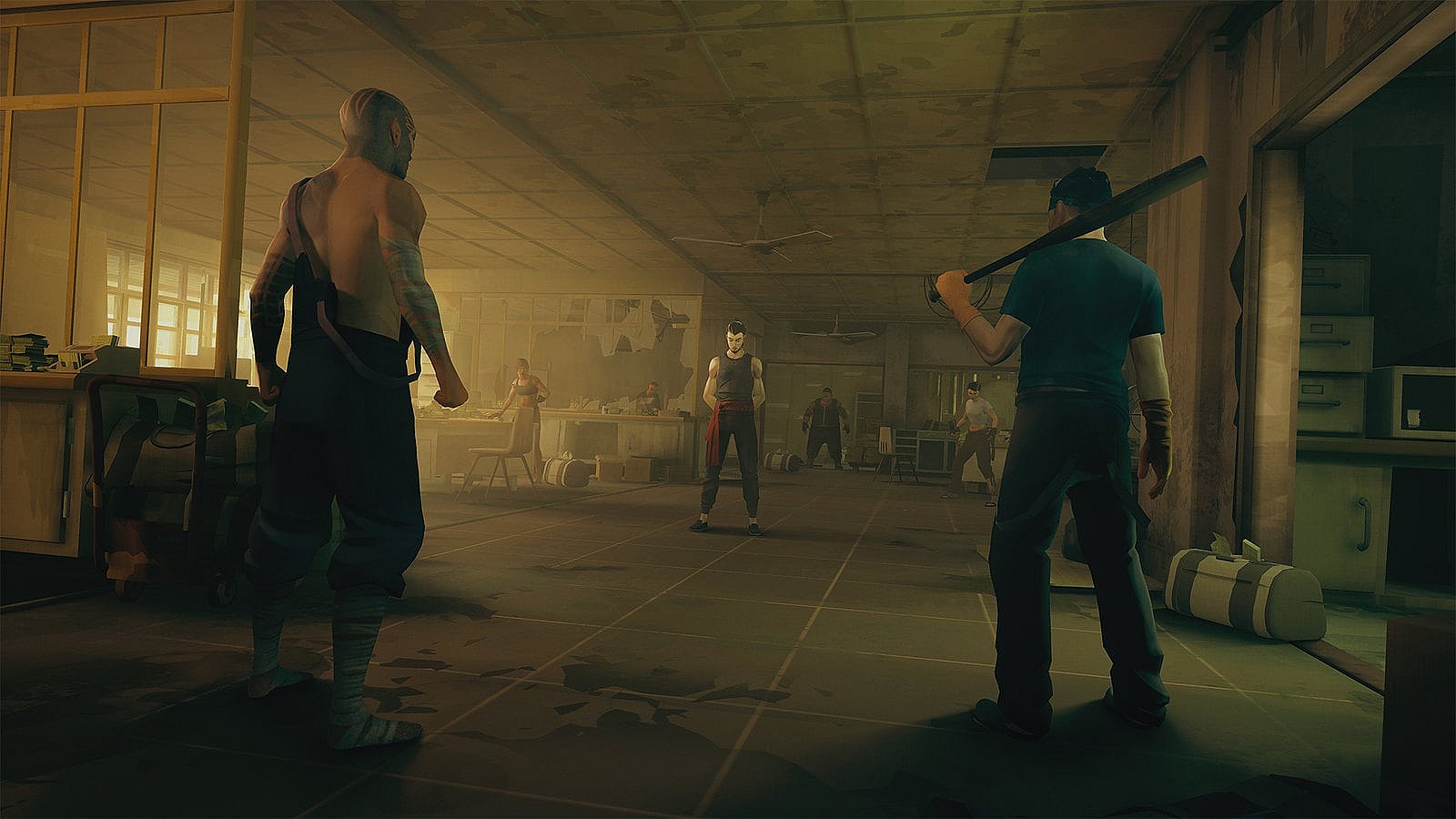
Blake Morse of Shack News felt SIFU had a light plot, dialogue choices having little effect on the ending, and the cel-shading stripping detail away from the environments that otherwise brought to life through assets. Morse also felt the aging mechanic and difficulty was brutal, resorting to grinding to get more EXP.
“I think it’s also worth noting that Sifu was developed by a European development team,” Morse concludes, “and some aspects of the game do come off as culturally tone-deaf.”

Olly Smithof GameByte, another journalist who was quick to mention that he was both white and not well-verse on Chinese culture, felt SIFU’s cultural setting “seems to pull mostly from more modern Asian action cinema and misses the broader context of it,” stating that “Sifu’s obsession with China ‘as an aesthetic’ highlights some of the problems with modern game development.”
“It might have been better had Sloclap included educational resources that seek to teach players about the history of martial arts, or maybe hired more developers who were Chinese,” he wagged his finger.

Interestingly, in order to give their arguments weight amidst the hypocritical fact that almost all of them have been exclusively non-Asian, a surprising number of these critics supported their accusations by citing the same TheGamer piece.
Somewhat sensationally headlined “Sifu’s Kungfu Brawling Is Made By A Studio Full Of White Developers,” The Gamer’s article features a lamention from site feature’s editor Khee Hoon Chan that “like Ghost of Tsushima before it, Sifu was made entirely by a team of white developers.”

“Even its [fight] consultant, Ben Colussi—a martial artist they hired to choreograph the fist fights in Sifu, and who also doubled up as Sifu’s cultural consultant of sorts—is a white martial artist who’s well-versed in Pak Mei, one of the more aggressive forms of Chinese martial arts,” Chan continued, completely dismissing Colussi’s accomplishments solely based on the martial artist’s skin color.
Notably, Chan did offer the game some praise, writing, “Sloclap’s attention to details is admirable in an industry that does only the bare minimum for diversity and representation, and a small part of me is glad to see some positive representation of Chinese martial arts, without the game resorting to racist cliches, like moustache-twirling villains with Fu Manchu facial hair.”

However, the sincerity of Chan’s entire argument was then called into question, as he next admitted, ” to be fair, there isn’t anything particularly egregious about Sifu so far—I’ve seen the trailers, watched several gameplay videos, and discovered, to my huge relief, that there has been no misspelt Chinese words, and zero philosophising of the concept of “honor”, be it by the protagonist himself or the game makers
Nonetheless, Chan further lamented, “it is still a pity that none of the studio leads—even the consultant they hired—are Chinese or Asian, particularly for a game that features a Chinese protagonist, along with an entirely Chinese cast of characters and punchable mobsters.”

“This incongruence still says volumes about a predominantly white industry that is in love with non-white cultures,” he continued. “but is largely reluctant to challenge the structural racism endemic to the industry.”
He then claimed, “You can see this already, in the responses—sometimes vitriol—in the games made by or backed by Chinese developers and studios,” before disingenuously conflating criticism of Chinese developers with racism by asserting, “The frequency of these responses become even more pronounced, of course, when it comes to anything revolving around Tencent and Mihoyo.”

Chan’s good-faith engagement was brought even further into question when independent journalist Sophia Narwitz‘s highlighted a tweet made by the critic in which he openly espoused his racist hatred of white people.
At one point during a lengthy thread authored in response to pushback against his above article, Chan declared, “White gamers have zero nuance, zero understanding of the world, and it’ll forever be like this because the world bends over to meet their expectations. And if they’re upset, they just scream at their targets until everything works, miraculously, in their favour.”

Later, Chan even went as far as to outright admit, “Do I hate white people? Yes.”
“And if you’re a friend, you’ll understand why this is never personal,” he attempted to justify his own blanket racism. “I hate white privilege so much, their ability to scream reverse racism when faced with a tiny bit of criticism. The world revolves around them, even in Singapore. Everyday.”
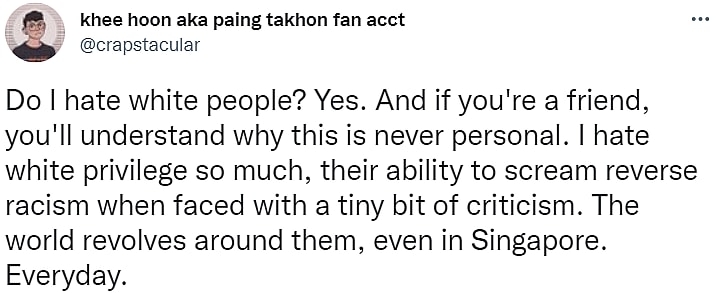
Chan’s criticisms unsurprisingly continued into his review of the game, wherein he mourned that the game was a “Soulless Caricature” and focused his criticisms on his belief that the game had used Chinese culture to “pepper in a little flair, and to sprinkle a little bit of exoticism.”
“The problem, however, with only distilling Sifu purely down to its mechanics and systems, is that criticism from the cultural or socioeconomic perspective has long been overlooked, as if these are less important aspects of the game that don’t deserve as much attention,” he wrote. . It somehow implies that mechanics and gameplay are sacrosanct to games, as if that’s all the medium is capable of—a point that we obviously know is not true.”

Hoon Chan also took issue with the game’s Creator Kit featuring several items inspired by Chinese culture, finding that their inclusion was representative of how “Chinese and religious paraphernalia have been reduced to plastic trinkets and novelty souvenirs […] all of which is remarkably insulting because it appropriates these cultural objects and bludgeons them into marketing tools to be used by the studio.”
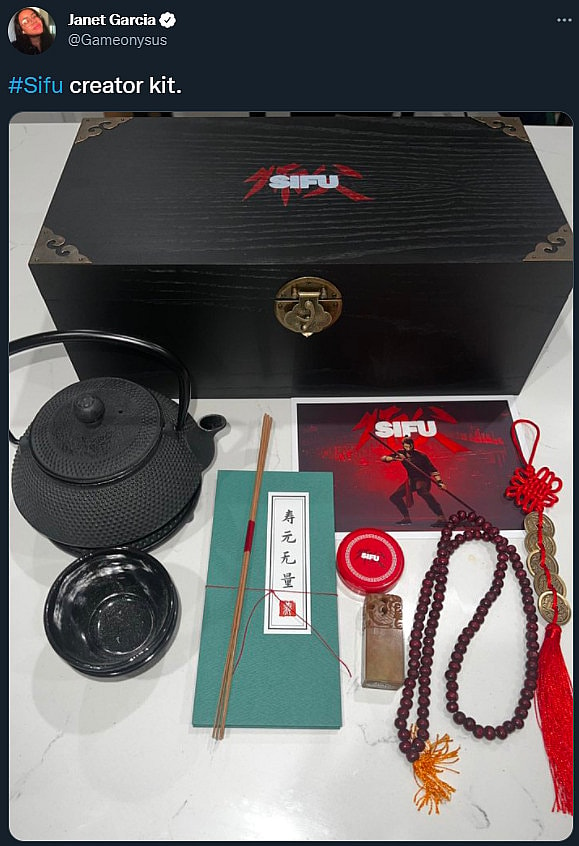
However, contrary to what the above game journalists have arrogantly led themselves to believe, The Verge’s review revealed that Sloclap actually received more consultation than most realized.
Taking the lead after reading both Chan’s editorial and FanByte’s review, The Verge’a Ash Parrish spoke to Sloclap co-founder and Sifu executive director Pierre Tarno about how the game tackled Chinese cuture.
“Our intention is to make something that is as authentic and respectful of Chinese kung fu culture as possible,” Tarno told Parrish. “Although we’ve got one concept artist on the team who’s of Chinese culture and descent, [who] was that first layer of how to get certain texts and details of the environment, right. But that was not enough for us. We wanted to go deeper.”

Tarno then revealed to that not only had Sloclap actually consulted with a number of Asian individuals within the video games industry, such as Anlu Liu of video game investment fund Kowloon Nights and Richie Zhu of Sloclap’s publishing partner, Keplet Interactive, but that they also “constantly played builds and provided feedback.”
Their feedback reportedly helped ensure the authenticity of such elements as the characters on the revival talisman being in the right order, the game’s Chinese voice actors sounding authentic, and dialogue coming across as genuine.
Further, they put Slowclap in contact with Chinese consultants – just as the many reviewers hoped for.

Speaking with Parrish t hemselves, Liu and Zhu not only recalled an anecdote about ensuring that the game swapped western front-loading washing machine models for more Chinese-familiar top-loading ones, but shared that they were excited about Sifu taking Chinese culture seriously and sensitively.
“I was also very surprised by this game because there haven’t been any real authentic kung fu games since Sleeping Dogs,” Zhu added. “I think a lot of people actually feel very proud of seeing China’s kung fu culture coming from a French studio putting so much effort into making this game.”

However, despite both this revelation and their own admission that Sifu “already seems to be receiving a warm reception in China,” Parrish held the party line, declaring that “the criticisms others have for the game cannot and should not be written off because, essentially, ‘Some Chinese people gave it a thumbs up.'”
“Nor does the fact that only white guys made this game not being strictly correct in no way invalidates people’s distaste over seeing white people tell a non-white story,” she continued, before – to the shock of no one – admitting that they have no right to speak on Chinese perspectives and outlooks.

RELATED: The Simpsons Will No Longer Allow White Actors To Voice Non-White Roles
Other like-minded reviews not discussed by Yellow Flash include those published by DualShockers, EuroGamer, and Inverse.
In conclusion to his video on the outrage, the YouTuber pondered whether or not the game would have gotten higher review scores from those outlets if it was worked on by more Chinese developers.

“This is stupid, and I hope this games sells a bajillion copies, just to make journalists mad- and if it gets nominated for any awards- God no, watch out man!” he exclaimed.
“Just about every review says it’s very respectful and praises it’s Chinese aesthetic- so what’s the problem?” Yellow Flash inquired. “It’s not like they’re running around, making them look bad, or using a bunch of negative things- no, no, no. Just the fact that they didn’t hire people to come over to France to develop the game?”
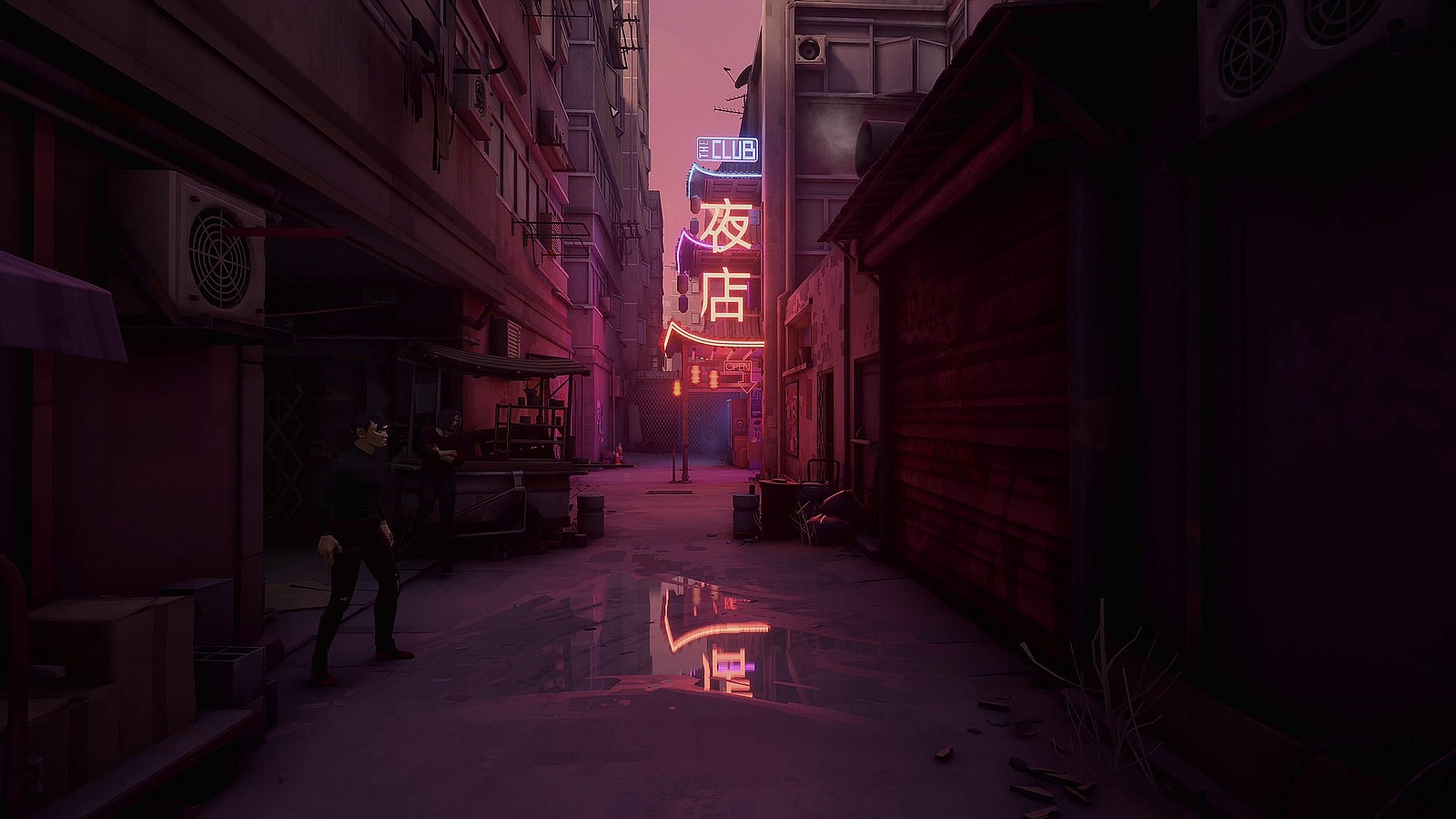
“If they’re respectful, and they love action kung-fu movies, they should be able to make anything they want. It’s so stupid,” he concluded. “So if you wanna get a kung-fu game, the only place it can come from is China? C’mon man!”
Ultimately, Yellow Flash speculated that it will likely only be game journalists and Twitter users who will be outraged over the game, while gamers will actually enjoy it. He also hopes that gamers in China will get to enjoy it, even offering his guess that they’ll like it too.

RELATED: Actor John Leguizamo Takes Issue With Super Mario Bros. Voice Cast: “Too Bad They Went All White”
Yellow Flash also notes early in his video that the same outcry occurred with Ghost of Tsushima, as some tried to claim the game was “cultural appropriation” due to being made by the Western-based Sucker Punch Productions. This criticism quickly fell quite after the game received rave reviews from Japan.
Even Toshihiro Nagoshi, then Sega chief creative officer and general director of Yakuza developer Ryu Ga Gotoku Studio, praised the game in an interview, stating that thanks to the developer’s research and hard work, “It’s the kind of work made by non-Japanese people that makes you feel they’re even more Japanese than us.”

What do you think? Let us know on social media and in the comments below.
NEXT: Woke Mob Furious Over Madame Web Casting Because the Actress Isn’t Blind
